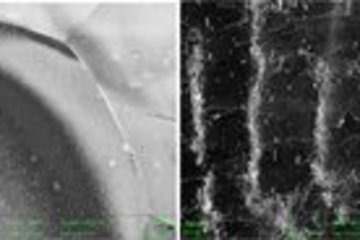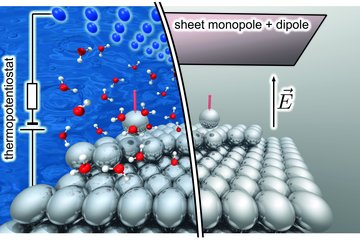All genres
501.
Teaching
Atomare Charakterisierung von Werkstoffen. Lecture: WS 2024/2025, Heinrich-Heine Universität Düsseldorf, October 26, 2024 - February 12, 2025
502.
Teaching
Moderne Material- und Werkstoffcharakterisierung: Vom Atom zum Bauteil. Lecture: SS 2024, RWTH Aachen University, 2024-04 - 2024-07
503.
Teaching
Atomare Charakterisierung von Werkstoffen. Lecture: WS 2023/2024, Heinrich-Heine Universität Düsseldorf, October 26, 2023 - February 12, 2024
504.
Teaching
Moderne Material- und Werkstoffcharakterisierung: Vom Atom zum Bauteil. Lecture: SS 2023, RWTH Aachen University, 2023-04 - 2023-07
505.
Teaching
Electron Microscopy and Analytical Techniques. Lecture: WS 2023/2024, RWTH Aachen University, 2023-10 - 2024-03
506.
Teaching
Materials Characterization. Lecture: WS 2023/2024, Ruhr-Universität Bochum & Universität Duisburg-Essen, 2023-10 - 2024-03
507.
Teaching
Atomare Charakterisierung von Werkstoffen. Lecture: WS 2022/2023, Heinrich-Heine Universität Düsseldorf, October 26, 2022 - February 12, 2023
508.
Teaching
Moderne Material- und Werkstoffcharakterisierung: Vom Atom zum Bauteil. Lecture: SS 2022, RWTH Aachen University, 2022-04 - 2022-07
509.
Teaching
Electron Microscopy and Analytical Techniques. Lecture: WS 2022/2023, RWTH Aachen University, 2022-10 - 2023-03
510.
Teaching
Moderne Material- und Werkstoffcharakterisierung: Vom Atom zum Bauteil. Lecture: SS 2021, RWTH Aachen University, 2021-04 - 2021-07
511.
Teaching
Advanced Characterisation. Lecture: WS 2021/2022, RWTH Aachen University, 2021-10 - 2022-03
512.
Teaching
Atomare Charakterisierung von Werkstoffen. Lecture: WS 2020/2021, Heinrich-Heine Universität Düsseldorf, October 26, 2020 - February 12, 2021
513.
Teaching
Moderne Material- und Werkstoffcharakterisierung: Vom Atom zum Bauteil. Lecture: SS 2020, RWTH Aachen University, 2020-04 - 2020-07
514.
Teaching
Electron Microscopy and Analytical Techniques. Lecture: WS 2020/2021, RWTH Aachen University, 2020-10 - 2021-03
515.
Teaching
Moderne Material- und Werkstoffcharakterisierung: Vom Atom zum Bauteil. Lecture: SS 2019, RWTH Aachen University, 2019-04 - 2019-07
516.
Teaching
Electron Microscopy and Analytical Techniques. Lecture: WS 2019/2020, RWTH Aachen University, 2019-10 - 2020-03
517.
Teaching
Atomare Charakterisierung von Werkstoffen. Lecture: WS 2018/2019, Heinrich-Heine Universität Düsseldorf, October 08, 2018 - February 01, 2019
518.
Teaching
Electron Microscopy and Analytical Techniques. Lecture: WS 2018/2019, RWTH Aachen University, 2018-10 - 2019-03
519.
Thesis - PhD
Structural Analysis and Correlative Cathodoluminescence Investigations of Pr (doped) Niobates. Dissertation, Georessourcen und Materialtechnik, RWTH Aachen (2022)
520.
Thesis - PhD
Advancing the understanding of the microstructure-property relationship in non-toxic and cost-effective thermoelectric Heusler compounds. Dissertation, Fakultät für Georessourcen und Materialtechnik der RWTH Aachen, Germany (2022)











